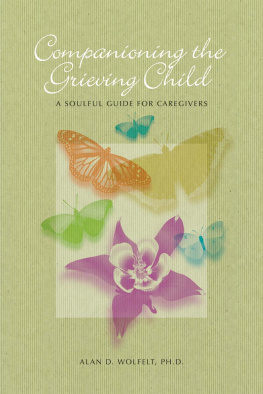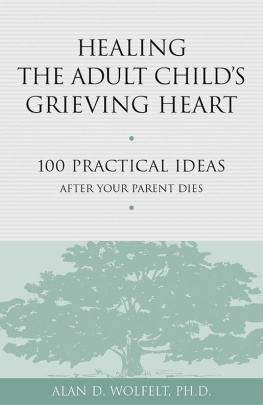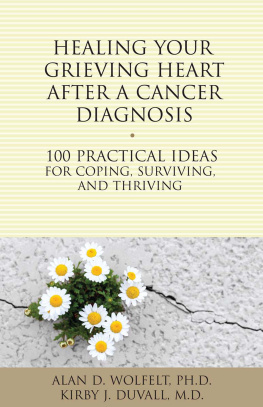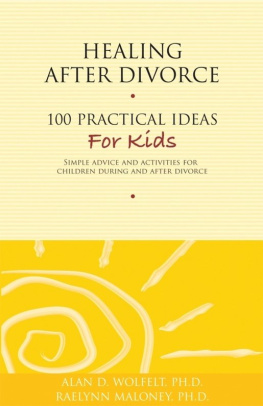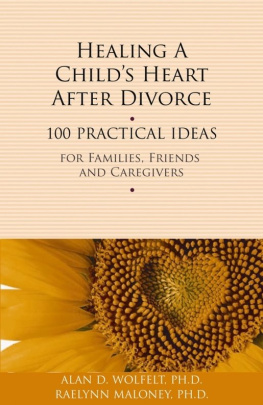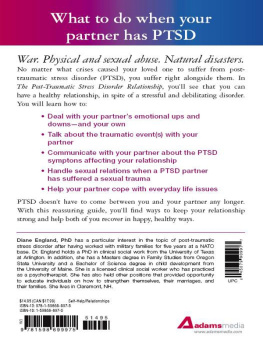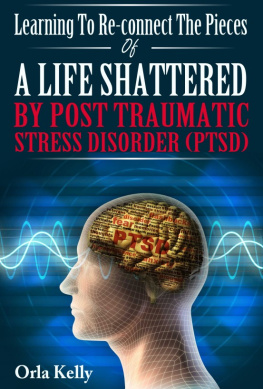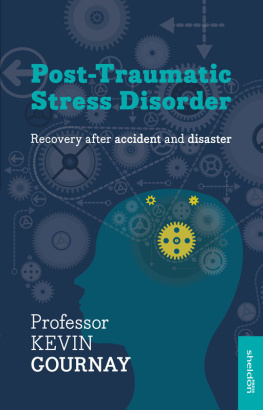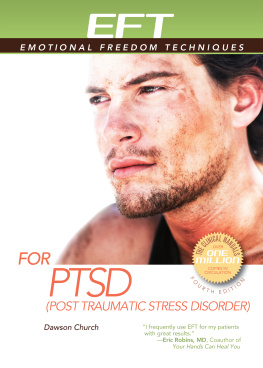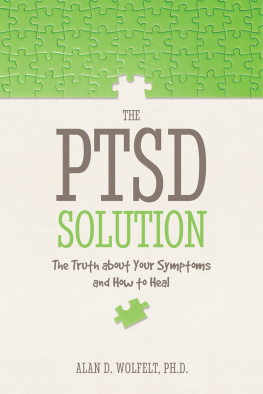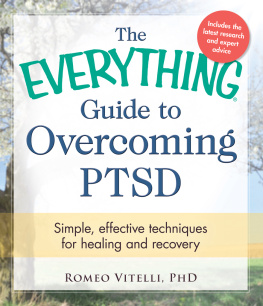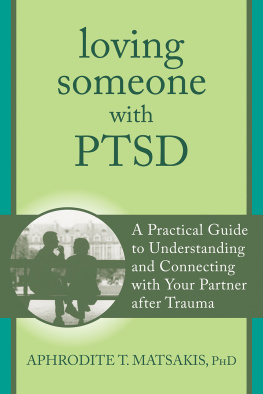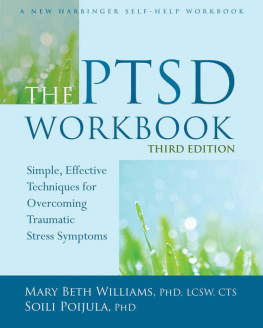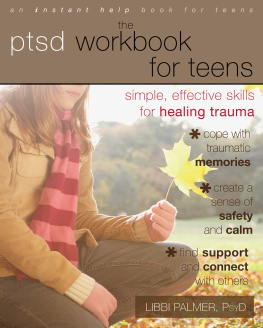ALSO BY ALAN D. WOLFELT, PH.D., C.T.
Companioning the Bereaved:
A Soulful Guide for Caregivers
Healing Your Traumatized Heart:
100 Practical Ideas After Someone You Love
Dies a Sudden, Violent Death
Living in the Shadow of the Ghosts of Grief
The Mourners Book of Hope:
30 Days of Inspiration
Understanding Your Grief:
Ten Essential Touchstones for
Finding Hope and Healing Your Heart
Companion Press is dedicated to the education and support
of both the bereaved and bereavement caregivers. We believe that
those who companion the bereaved by walking with them as they
journey in grief have a wondrous opportunity:
to help others embrace and grow through grief
and to lead fuller, more deeply-lived lives themselves
because of this important ministry.
For a complete catalog and ordering information, write, call, or visit:

The Center for Loss and Life Transition
3735 Broken Bow Road | Fort Collins, CO 80526
(970) 226-6050 | www.centerforloss.com

2014 by Alan D. Wolfelt, Ph.D., C.T.
All rights reserved. No part of this publication may be reproduced, stored in a retrieval system, or transmitted in any form or by any means, electronic, mechanical, photocopying, recording or otherwise, without the prior permission of the publisher.
Companion Press is an imprint of the Center for Loss and Life Transition, 3735 Broken Bow Road, Fort Collins, Colorado 80526.
Companion Press books may be purchased in bulk for sales promotions, premiums, and fundraisers. Please contact the publisher at the above address for more information.
21 20 19 18 17 16 15 14 5 4 3 2 1
ISBN: 978-1-61722-213-9
To all for whom the cloud of PTSD has not yet lifted.
There can be light.
My hope is that this resource will help inspire
caregivers to provide you with a safe place
in which to surrender to the
wilderness that is traumatic grief.
Contents
CHAPTER ONE:
Grief not as an illness but as a response to injury
CHAPTER TWO:
Traumatic loss and grief
CHAPTER THREE:
The symptoms of PTSD and traumatic grief
CHAPTER FOUR:
The fear factor of PTSD
CHAPTER FIVE:
Fear, withdrawal, and negativity in normal grief
CHAPTER SIX:
Traumatic grief as a form of complicated grief
CHAPTER SEVEN:
Medical-model therapies as treatment
CHAPTER EIGHT:
Mourning as treatment
CHAPTER NINE:
The companioning philosophy of grief care
CHAPTER TEN:
When traumatic grief goes unmourned
CHAPTER ELEVEN:
Catch-up mourning for traumatic grief
CHAPTER TWELVE:
Where to go from here?
A culture that insists on seeing suffering as a pathology,
that is ashamed of suffering as a sign of failure or inadequacy,
a culture bent on the quick fix for emotional pain,
inevitably ends up denying both the
social and spiritual dimensions of our sorrows
MIRIAM GREENSPAN
Foreword
It was July of 2010 when a friend gave me a book to read, hoping that somehow it would help. It had only been three months since my beautiful wife, Carolyn, died in my arms. I returned to my military job just two weeks after her death. Somehow, I told myself, I needed to get over it and move on, just as I had with all of the losses in my life. Suck it up and get back to helping the warriors in the fleet and on the front lines. There were still wars going on, and I needed to do my part for the freedom of our country. Service above all and before self.
Little did I know that Carolyns death would unlock a box of lifetime trauma and grief that I thought was securely sealed. But, as the weeks went by, I began to have feelings of fear, panic, depression, guilt, and lonelinessfeelings that were so dark I had no idea what they were.
The book my friend gave me was still sitting on my nightstand. With all the courage I could muster, I picked it up and began to read Understanding Your Grief. That was all it took. That was my first introduction to Dr. Alan Wolfelts work.
I discovered that one of Dr. Wolfelts graduates from his Center for Loss and Life Transition, Marilyn, lived in our military community. Marilyn led a support group for those who had lost a loved one. With trepidation, I asked to join, and so began my first support group experience. It was during this time I began to understand Dr. Wolfelts philosophy of companioning people in grief. I started to absorb his teaching that you must mourn to heal and the six needs of mourning. It was also during this time that my physicians suspected I may be struggling with post-traumatic stress disorder (PTSD).
In 2002 Carolyn and I had started a non-profit organization to help provide financial assistance to our most severely wounded veterans and the families of these veterans. Many thousands of our military were returning with severe physical injuries, and many more were returning with invisible injuries like PTSD. Our wounded warriors were overwhelming our countrys ability to care for them. As far as mental health is concerned, that is still the case. In 2007 a U.S. senator asked that I testify to the Presidents Commission on Returning Wounded Warriors. In the testimony, I gave accounts of how our Veterans Affairs case managers, social workers, and mental health physicians were understaffed and ill trained to deal with the caseloads. While there has since been some improvement for our veterans, their mental health still goes under-treated PTSD is the most diagnosed and highest disability-rated mental health issue for our Iraq and Afghanistan veterans. Our system was looking for a quick fix in order to get them out the door.
With my suspected diagnosis of PTSD in late 2010, I pushed even harder to find a cure for myself. I was very fortunate to have mental- and physical-health physicians who were more centrist in their medical-model thinking and encouraged me to explore a more homeopathic approach to treatment. That is when my search for a greater understanding of Dr. Wolfelts holistic approach to grief began in earnest. Still, I believed I needed to get fixed quickly. It had already been six months. What was wrong with me?
In 2012 my foundation co-sponsored Dr. Wolfelt to present his companioning philosophy to our local community. After meeting Dr. Wolfelt and with the encouragement of family, friends, and doctors, I have attended many of his workshops at the Center for Loss and Life Transition in Fort Collins, Colorado. Very slowly I have come to know that there is no reward for speed. With Dr. Wolfelts companioning, I have come to the understanding that grief from trauma is unique for each person. There is not a magic pill (much to my chagrin) to fix it. I have learned that traumatic grief, when not mourned, can become PTSD. Grief is complicated, messy, non-linear, and not scientific. I found myself fighting this new understanding of grief every step of the way. Where was science when I needed it? There are still days that I fight back and resist. I still push back on letting myself move into the deepest of the dark places, knowing that it will be painful.
I have always stuffed my grief or just sucked it up, from my earliest memories of my teenage friends taking their lives and my best friends not returning from war. I can remember Mike, John, Paul, and Cindy. I can remember the gun that Mike used to take his life. I can remember the bomb that killed Joe. But I had never mourned them, and they were my best friends. Carolyns death started me on a journey that I never imagined and never wanteda journey of going back so that I can go forward.
Next page

